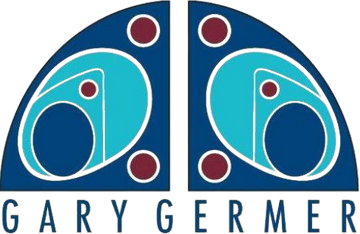David Roberts R.A. Colored Lithograph Encampment of the Aulad Sa'id Mt. Sanai
SaleDavid Roberts R.A.
Encampment of the Aulad Sa'id Mount Sinai Feb 18th 1839
Hand Colored lithograph
Haghe, Louis, 1806-1885, lithographer
Roberts, David, 1796-1864, artist
published between 1844 and 1845]
Lithograph measures 13.5" x 19"
Wood frame measures 22.25" x 27.5"
well framed excellent condition
Painting drawn at Wadi El Sheikh between its junctions with Wadi El Sebaa'iya to the north and Wadi Dier (Biblical Holy Valley) to the south, showing the vicinity of Wadi El Sheikh from right to left and its junction with Wadi Dier in centre-right in the foreground, the northern summit of Gebel Abu Mahrur to the right and the summits of Ras El Sefsafa (Monacha, Biblical Mount Horeb) and Gebel Armaziya from centre-right to centre-left in the background, and the cone-shape summit of Gebel 'Arribeh above the Bedouin encampment in the middle in centre-left. (Source: A. Shams, Sinai Peninsula Research, 2018)
- This area is located to the north of the Early Neolithic (A) site of Ugret El Mahd (8,300-7,500 BCE) and another unidentified earlier site before 8,300 BCE. Camels replaced feral donkeys in transportation in 2nd millennium BCE, though domesticated donkeys are still used in the High Mountains of Sinai Peninsula. The site is close to El Khrazeen area in the territory of the Gebaliya tribe, where Al 'Urayr and Al Aqra' Bedouin families of Awlad Silim quarter live at El Khrazeen locality. The Gebaliya is part of "El-Tawara Tribal Alliance" in South Sinai between the following tribes: Mezena,'Aliqat, Hamada and Bani Wasel, Awlad Sa'aed, Qrarsha and Sawalha, and Gebaliya, in addition to Mawtra tribe. (Source: A. Shams, Sinai Peninsula Research, 2018)
- Illus. in: The Holy Land, Syria, Idumea, Arabia, Egypt and Nubia / from drawings made on the spot by David Roberts ... ; lithographed by Louis Haghe. London : F.G. Moon, 1842-1845, v. 3, pts. 16-18, p. 10.
- Surrogate reference copy available in: The Holy Land / David Roberts. Tel-Aviv, Israel : Terra Sancta Arts, 1982, v. 5, pl. 109, p. 10.
- Tooley, no. 109
- Painting drawn at Wadi El Sheikh between its junctions with Wadi El Sebaa'iya to the north and Wadi Dier (Biblical Holy Valley) to the south, showing the vicinity of Wadi El Sheikh from right to left and its junction with Wadi Dier in centre-right in the foreground, the northern summit of Gebel Abu Mahrur to the right and the summits of Ras El Sefsafa (Monacha, Biblical Mount Horeb) and Gebel Armaziya from centre-right to centre-left in the background, and the cone-shape summit of Gebel 'Arribeh above the Bedouin encampment in the middle in centre-left. (Source: A. Shams, Sinai Peninsula Research, 2018)
- This area is located to the north of the Early Neolithic (A) site of Ugret El Mahd (8,300-7,500 BCE) and another unidentified earlier site before 8,300 BCE. Camels replaced feral donkeys in transportation in 2nd millennium BCE, though domesticated donkeys are still used in the High Mountains of Sinai Peninsula. The site is close to El Khrazeen area in the territory of the Gebaliya tribe, where Al 'Urayr and Al Aqra' Bedouin families of Awlad Silim quarter live at El Khrazeen locality. The Gebaliya is part of "El-Tawara Tribal Alliance" in South Sinai between the following tribes: Mezena,'Aliqat, Hamada and Bani Wasel, Awlad Sa'aed, Qrarsha and Sawalha, and Gebaliya, in addition to Mawtra tribe. (Source: A. Shams, Sinai Peninsula Research, 2018)
10478-1







